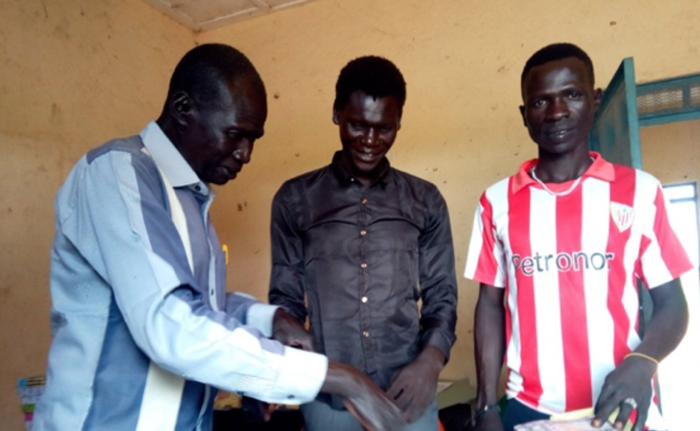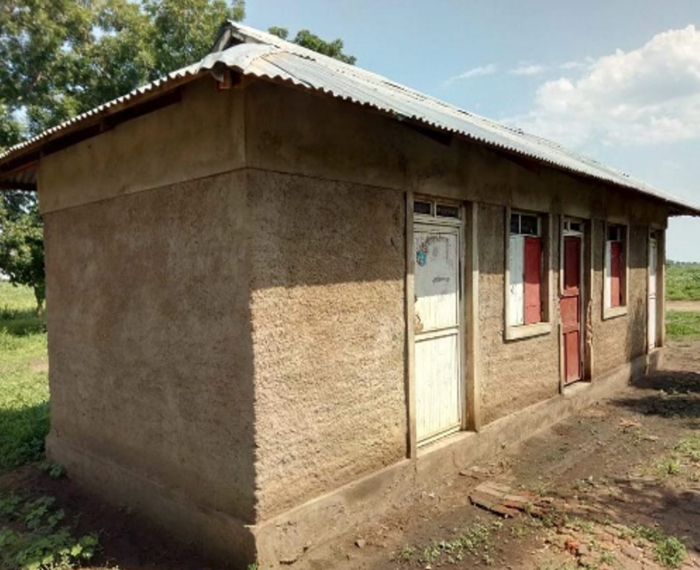Helping to Repopulate a School With Capitation Grants
September 1, 2020 3:35 pmLiang Mamur Primary School is based in Banishowa Payam, Maban County of Upper Nile State. During fighting in 2016, the school was abandoned, and the population scattered and settled at Dangaji Boma. Unsure of when it would be safe to return, the school operated as an Internally Displaced Persons (IDPS) school in Dangaji, the school had a total enrolment of 404 (166 females and 238 males).
Along with peace, the population started moving back to Banishowa in 2019 and classes at the original site of Liang Mamur Primary School resumed.
To ensure that all parents sent their children back to school, the school administration, Head Teacher and the school management committee (SMC – a variation of the traditional parent-teacher association) members, embarked on community mobilisation through a series of meetings.
As a result of the mobilisation, enrolment increased from 429 (197 females; 232 males) in 2019 to 842 (303 females; 539 males) at the beginning of the 2020 academic year. The school administration attributed these increases to “relative peace, strong mobilisation of parents and the presence of IDPs from Maiwut”.
Since 2017, the school has been receiving GESS Capitation Grants. Capitation Grants are funds made available to all not-for-profit schools to help supplement running costs and improve the learning environment. Primary school Capitation Grants are funded by the Ministry of General Education and Instruction (MoGEI) of South Sudan. Whilst secondary school Capitation Grants are funded by UK aid from the UK government and by Canadian government through Global Affairs Canada. Food for the Hungry (FH) South Sudan is our ‘State Anchor’ (implementing partner) in Upper Nile State. The State Anchors make sure that schools meet the necessary requirements in place to receive Capitation Grants year on year. For more information on Capitation Grants, go here.
Capitation Grants have allowed schools to set their own priorities for development, and to respond to their own needs. By the end of the first phase of the GESS programme, 4,055 Primary Schools and 317 Secondary Schools across the country had benefitted from a Capitation Grant across South Sudan.

The school administration after receiving the 2019 Capitation Grant
In 2017 Liang Mamur Primary School received 71,640 South Sudanese Pounds (SSP), 44,436 SSP in 2018 and 79,044 SSP in 2019. The 2019 Capitation Grant that was received after the school moved back to its original location allowed the school to get up and running again. The school has a permanent building of six classrooms and one class that took place under a tree, which is not uncommon in South Sudan. The windows and the doors were all broken during the fighting of 2016, which resulted in people breaking and entering to steal items from the classrooms. The SMC therefore prioritised fixing the doors and the windows to ensure that the school was secure. Other purchases included tables and chairs for classrooms, as well as new textbooks.

One of the classrooms at Liang Mamur Primary School after the doors and window repairs
The school administration is determined that every child of school age in the area attends school. They hope that they can do this through a combination of community mobilisation and by improving the school environment through the Capitation Grant. Cash Transfers to girls are a big incentive for girls in Upper Primary classes. Together, it is hoped that these interventions can encourage learners to come back to schools when they safely reopen.
For more information on Capitation Grants, go here.
Categorised in: Uncategorised
Comments are closed here.